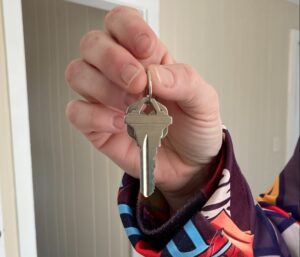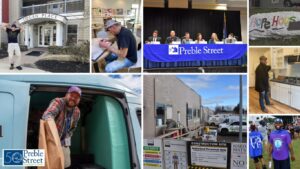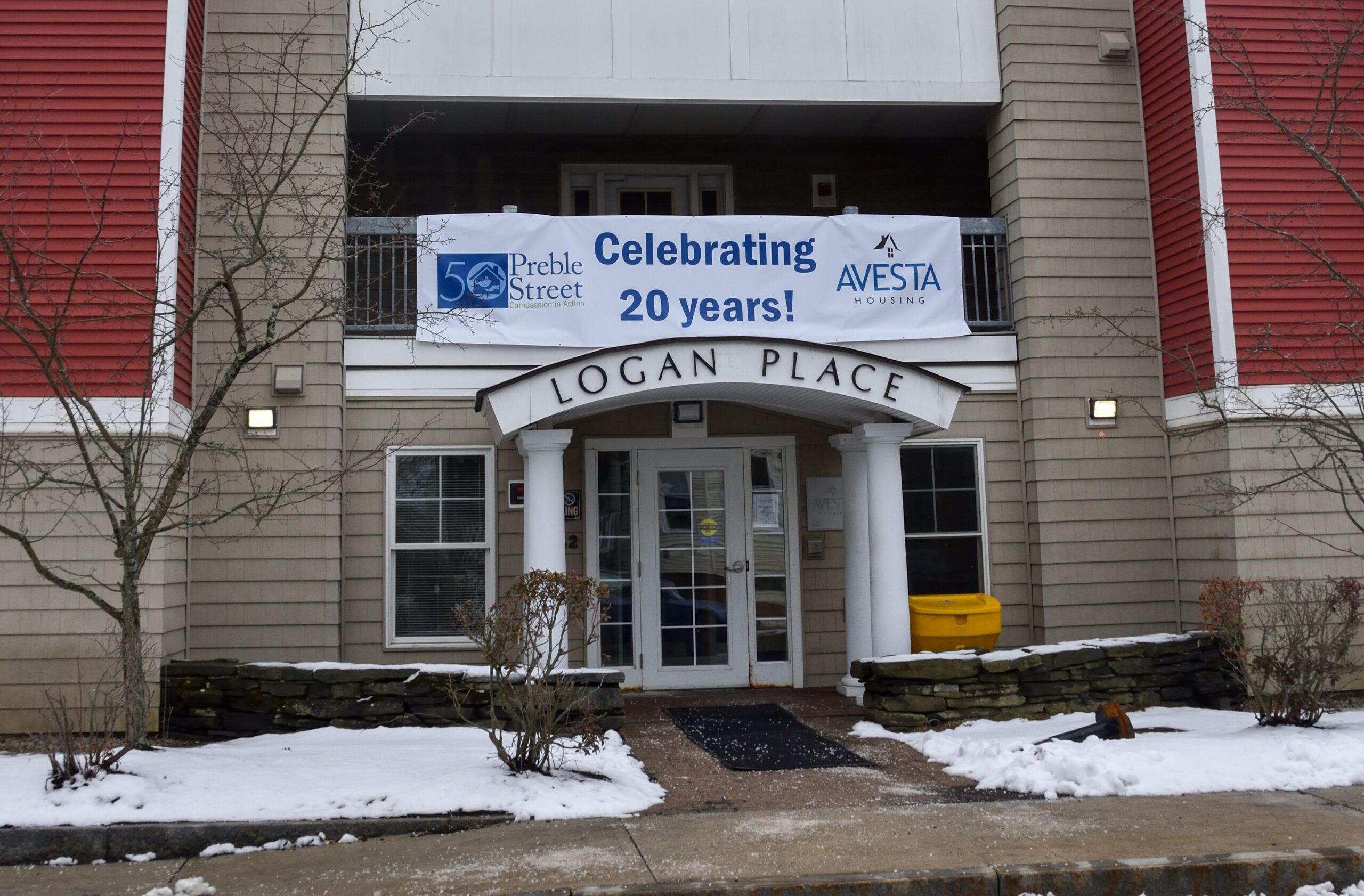“I feel like I’ve got a new lease on life. I can now heal. I can stretch out these last years a bit,
spend time with my mother and my daughter.” – Logan Place Tenant
20 years ago, on March 24, 2005, Preble Street and Avesta Housing opened Logan Place, the first permanent supportive housing program with 24/7 support services in Maine. That night, the number of people using the city overnight shelter at Oxford Street decreased for the first time in decades, and we began the journey to ending chronic homelessness in our state.
This video featuring some of Logan Place’s original tenants was created shortly after it opened.
When provided housing combined with the support needed to maintain it, people who had been unhoused for years – and often decades – were able to rebuild their lives. Seeing the powerful impact supportive housing had on tenants, Preble Street and Avesta opened Florence House in 2010 (Florence House is celebrating its 15th anniversary in April) and later, Huston Commons. All three programs are geared toward individuals who have been homeless time and time again and who have untreated mental health or substance use disorders.
“I’m doing great. I’m very thankful for this place.
I’ve never had my own place, my own bathroom, my own kitchen.” – Tenant
Each tenant at Logan Place, Florence House, and Huston Commons has their own permanent efficiency apartment (85 units altogether) and casework staff provide 24-hour supportive services to maximize housing stability and prevent returns to homelessness. In all, these programs have housed 223 tenants over the last 20 years. And 24/7 supportive housing not only changes lives, it also saves the community money.
Individuals forced to live outside often have frequent interactions with emergency services – including police and emergency rooms – that are traumatic for them and costly for the community. Once living in an apartment in a supportive environment without barriers to housing, these interactions decrease dramatically or stop altogether, and individuals begin to heal and work toward their goals.
“It’s having your needs met. You’re warm in winter, you have adequate shelter, a shower, I get a food box every week. Your needs get met before everything else falls into place.” – Tenant
Filmed in 2024, this video interviews tenants from all three of Preble Street’s supportive housing programs.
Homelessness and poverty disproportionately affect underserved communities. In Maine, Black and African American individuals are ten times more likely to experience homelessness than their White peers, and there are not enough supports in place to keep many older adults from slipping through the cracks. These systemic injustices are reflected in the demographics of Preble Street’s housing programs, where 20% of the tenants have identified as a race other than White (compared to 6% of the state) with a median age of 51 (46 for the state).
As we work to end chronic homelessness in Maine, we are thrilled to have partners at the state and local levels who have invested in helping Preble Street and other agencies open more 24/7 supportive housing sites throughout the state in the coming years. Housing is a human right, and every person in Maine deserves a home.
Learn more

We all need a safe place to call home
No one should have to live outside. Everyone regardless of who they are or where they come from needs a safe place to call home. There are hundreds of people experiencing unsheltered homelessness in Maine this winter, living outside in the cold… in parks, under bridges, beneath overpasses, and in many other places not meant

A look back at 2024
2024 was a year full of many difficult challenges and lessons but also a year full of progress on important issues. After 50 years, Preble Street understands how important it is to recognize the positive while still holding space to learn from the obstacles we’ve faced. As 2024 comes to a close, Preble Street looks

A feeling of home sweet home
[A meal] is so comforting. It’s a feeling of home sweet home. There have been times when I’ve been hungry for so long and struggled for so long that I had a hard time digesting food… I know people that have gone without food so long that having a plate of food in front of

